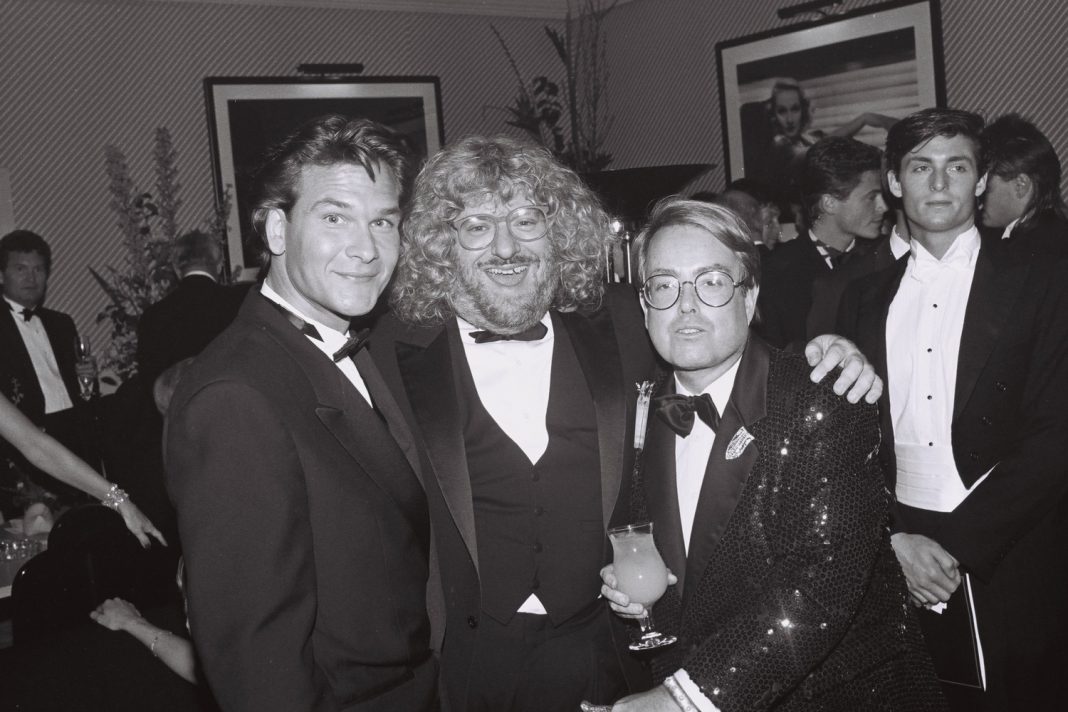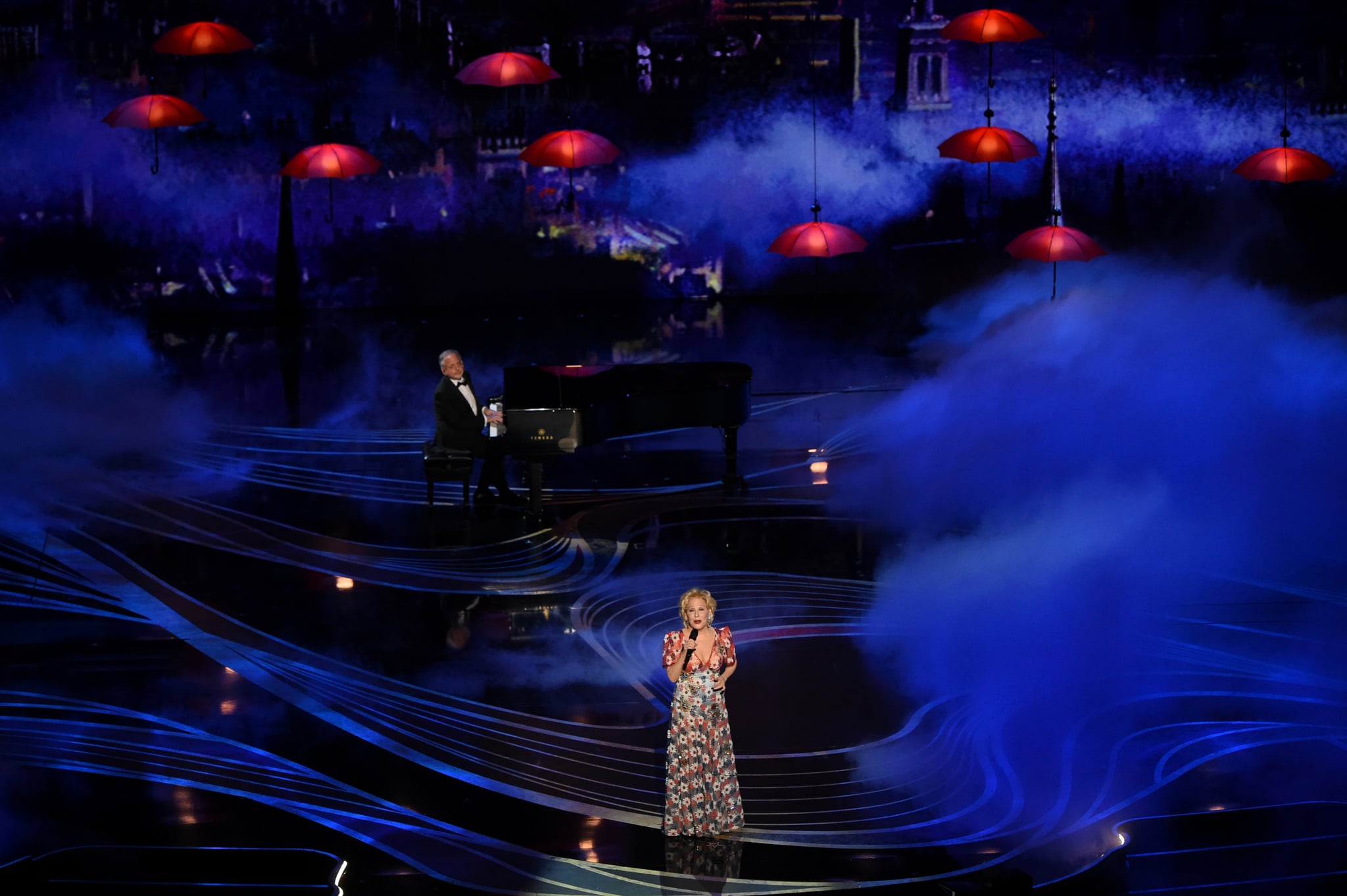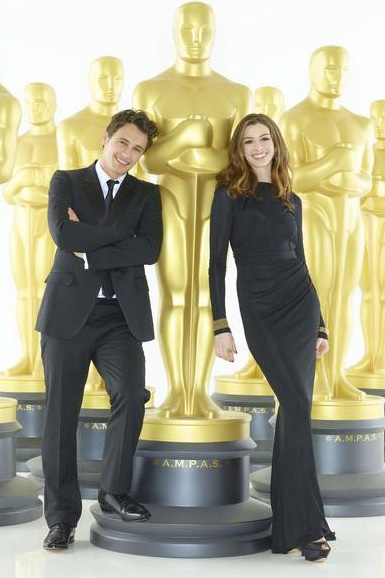LA Magazine
Oscars Dirt: Veteran Writer Bruce Vilanch Tells All (and More)
By Andrew Goldman
April 13, 2021

The 1989 Oscars, infamous for their 11-minute opening production number that saw Snow White dueting with Rob Lowe on “Proud Mary,” ended the career of the show’s producer, Allan Carr. That year’s ceremony, however, proved a more auspicious beginning for first-time telecast-writer Bruce Vilanch, who would go on to work on 24 more shows. “They gave me a T-shirt that said, ‘I wrote everything but Snow White,’” Vilanch, 72, says. The humorist started as a writer for the Chicago Tribune before Hollywood came calling. Over the years, he’s written not just for the Oscars but also the Tonys, Grammys, and Emmys, making him a kind of awards-show éminence grise, if someone as blond as Vilanch can technically be considered such a thing.
Here, he talks to Andrew Goldman about past Oscar ceremonies and offers a few COVID-era what-not-to-dos for the first-time producers of April 25’s Oscars.
Listen to the full conversation with Vilanch on Los Angeles‘ podcast The Originals.
A big part of the job of an Oscar writer is writing the bits that the stars say while presenting. Would you get a lot of pushback from stars?
You get notes, and everybody gets into the act. I mean, I literally got a call once from a guy who was Goldie Hawn’s yoga trainer, who said, “She left a script at the studio, and I took a look at it. You know, she’s not going to say this.” This actually happened.
Who was particularly hard to write for?
Keanu Reeves was hard to write for because there’s no stage personality there. Johnny Depp was the same thing. I mean, when actors inhabit characters, it’s on the page and that’s their job. But they’re not like Shirley MacLaine or Billy Crystal or Bette Midler, who strut out on stage every night and have the stage persona. I had a bitter failure with Keanu, who’s a really terrific guy. We thought we’d give him a Bill and Ted kind of thing to do. It was ridiculous. He tried to sell it. It just didn’t work. Forty years later and I’m still apologizing to him.

Oscar telecast history is filled with jokes that don’t land. In your role as a writer, were you ever able to prevent a disaster?
Well, one obvious one comes to mind. We had a joke [for host Billy Crystal] about the rumor about Richard Gere and a gerbil.
Oh my God. I can’t believe you considered doing a gerbiling joke at the Oscars.
Well, there was a movie that year called An American Tail about Fievel the mouse. And the joke was “Richard Gere was going to present this award with Fievel, but Fievel backed out.’ Richard was on the show presenting something very serious like a documentary, so he’s sitting out there, and we’re backstage looking at the monitors. And when you’re sitting at the Oscars and you see a guy coming up the aisle with a camera, you know something’s going to happen involving you that you don’t know about. So Richard sees the camera and he’s terrified. And so Billy just looks at him and says, “We can’t. He’ll have a heart attack. Look at him, he’s pale already.” So we cut the joke. I wish I could say that I said to cut it, but Billy said it.
The Oscars have been experimenting with having no host at all because it seems that despite how high-profile a gig it is, it’s hard to find someone willing to host.
It’s impossible.
Why?
Because if you’re big enough to host the Academy Awards, you can only get in your own way. Things that you would do on some other show and not get noticed . . . everybody notices it when you do on the Academy Awards. David Letterman did not need to host the show, and he was living with it for years afterward.
Is there somebody elusive that producers are always going after to host who’s never said yes?
Tom Hanks. I think he once said they’ll never nominate me again if I host the thing. I don’t think that’s true, but I just don’t think he wants to do it. One year Billy was very sick—had like severe migraines—and we were worried about whether he would make it. Tom was the standby. He would have come and done it, but Billy rallied and was great.
Do you remember people politicking to host?
Jay Leno wanted it very badly, but I think ABC was not interested in promoting him. Which is weird because Johnny Carson did it [five times between 1979 and 1984].
If someone hosts only once, is it fair to assume that person wasn’t deemed successful at it?
Maybe. Or it might be that they didn’t like it. These people are so rich and famous already that they don’t need go through all the agita. They don’t need the money. And if you’re going to do it the way a performer does it, you’re going to spend a lot of time on it—time that you could spend making a Marvel comics movie.
You worked on the infamous Anne Hathaway-James Franco show. What went wrong?

The idea was that they were young and that was all that mattered. But they had no real chemistry. When they got together to do the promos for the show, they were edited to look as if they had chemistry, but they had no chemistry.
When you say no chemistry, do you mean that they didn’t particularly care for one another?
I would hate to say that about either of them because I know them both and they’re nice people. But Anne’s a precision instrument. She’s very disciplined and knew what she was going to do each time. And James is freewheeling, so he was not really in his comfort zone. Plus, James had brought in a bunch of Judd Apatow writers who had never been involved with the show before, throwing him stuff.
Even with the best hosts, there’s a point at which the broadcast feels like it will never end. Is there any way to fix that?
Yeah, you have to eliminate categories. But the Academy’s not going to do that. Every year, I say, “When the ratings get low enough, they’ll start eliminating.” There are 24 categories, and only four of them have actors. Part of the reason that people get tired is because they’ve seen awards shows like the Golden Globes where everybody is recognizable. And the Oscar show is full of nerds. Some of them are saying some wonderful, significant things, but people aren’t listening because they don’t give a shit about them.
So what can this year’s Oscar producers—Steven Soderbergh, Stacey Sher, and Jesse Collins—learn from other COVID-19 era awards shows?
Well, the Emmys did it great. The Golden Globes tried to duplicate some of that, but they had some of their own ideas that didn’t work. Their comedy sketches swung wide, with Kristen Wiig and then Maya Rudolph and Keenan Thompson doing that thing. They were both funny premises, but they just didn’t land, especially when they had an audience of 50 first responders. It was a nice idea, but nobody wants to see an audience without celebrities in it. Plus, the show was laden with so much—they were carrying the guilt of the white race the whole show. Don’t do the show that you would normally do; do something completely different. Steven Soderbergh producing is a brilliant idea because he’s a filmmaker, and he’ll do something different with it. Because he knows that he can’t do the same old, same old. Because we’re in an extraordinary year.



